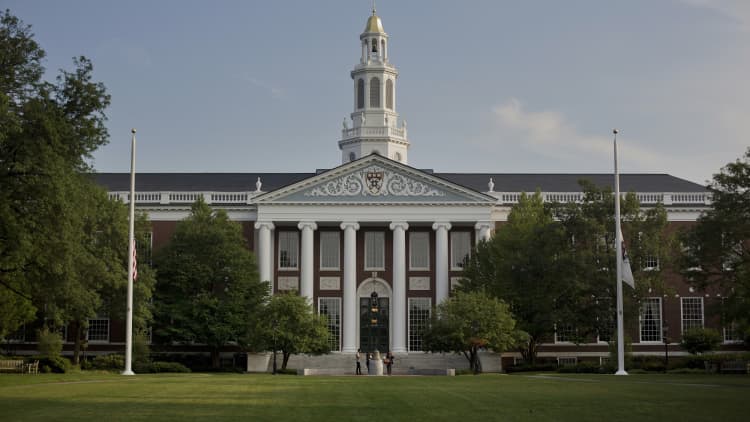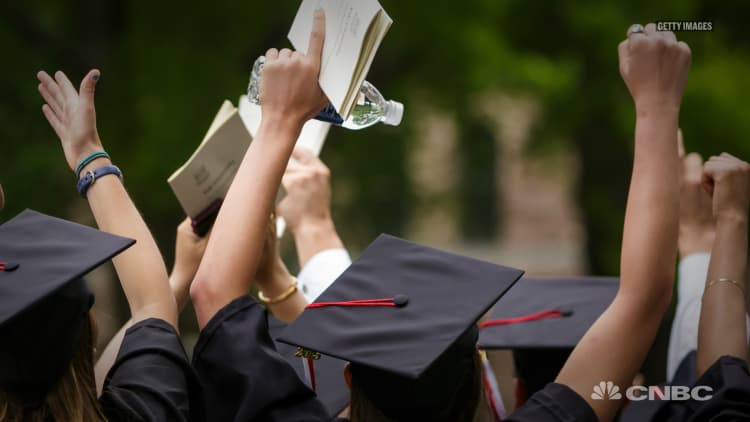College tuition prices have skyrocketed over the past several decades, a situation that's contributed to record-breaking levels of student debt. According to the Federal Reserve, Americans owed over $1.5 trillion in student loans in the fourth quarter of 2018.
But tuition rates and published sticker prices are not entirely indicative of the cost of college today.
Private non-profit, four-year schools have some of the highest four-year graduation rates and graduate some of the highest-earning students — but they also have the biggest sticker prices.
During the 2018-2019 school year, the reported tuition at private non-profit four-year schools was an average $35,830. But in reality, many students end up paying far less after grants and scholarships are factored in. The average net price of tuition and fees in 2019 is $14,610.
And that applies even at ratified institutions like Harvard University. Though tuition at Harvard is $47,730, and the cost of attendance can be as much as $78,200, many students end up paying significantly less.
According to Harvard's website, tuition costs for the 2019-2020 school year total $47,730, fees are $4,195, and room and board costs $17,682 for a subtotal of billed costs of $69,607.
After estimating personal expenses like text books ($4,193) and travel costs ($0-$4,400), Harvard estimates total billed and unbilled costs of about $73,800-$78,200 per year to attend the prestigious school — up from $71,650-$76,650 the previous year.
But the school reports that about 70% of Harvard students receive some form of financial aid, and claims that students whose parents make less than $65,000 are not expected to contribute any funds, and that "90% of American families would pay the same or less to send their children to Harvard as they would a state school."
About 55% of Harvard students receive need-based scholarship aid with average grant totals around $53,000.
The school states that families with students who receive scholarship funds pay an average of $12,000 towards their education per year and that students from families that earn between $65,000 and $150,000 typically contribute between 0% to 10% of their income towards the cost of attending Harvard each year.
Harvard, like many other schools, offers a net price calculator to help students estimate how much their families would be expected to pay.

Harvard is able to contribute this kind of financial support in part because of an endowment worth approximately $39.2 billion. And while this generous aid may help some students, about 30% of Harvard students receive no financial aid.
According to The New York Times, the median family income of a student from Harvard is $168,800, and 67% of students come from the highest-earning 20% of American households. About 15% come from families in the top 1% of American wealth distribution.

Of course, Harvard is not alone in admitting a disproportionate number of students from wealthy families. Harvard's own Raj Chetty conducted extensive research on the wealth distribution of American college students and found that students from the top 1% of households are 77 times more likely to be admitted to and attend an Ivy League school than students from families who make less than $30,000 a year.
Like this story? Subscribe to CNBC Make It on YouTube!
Don't miss:



